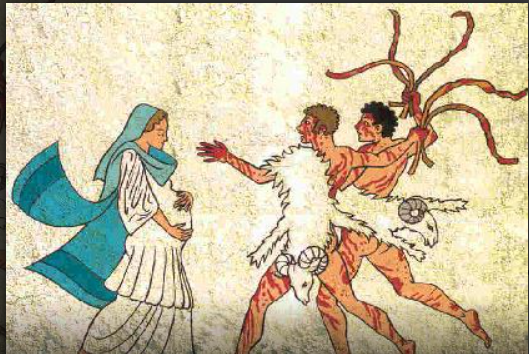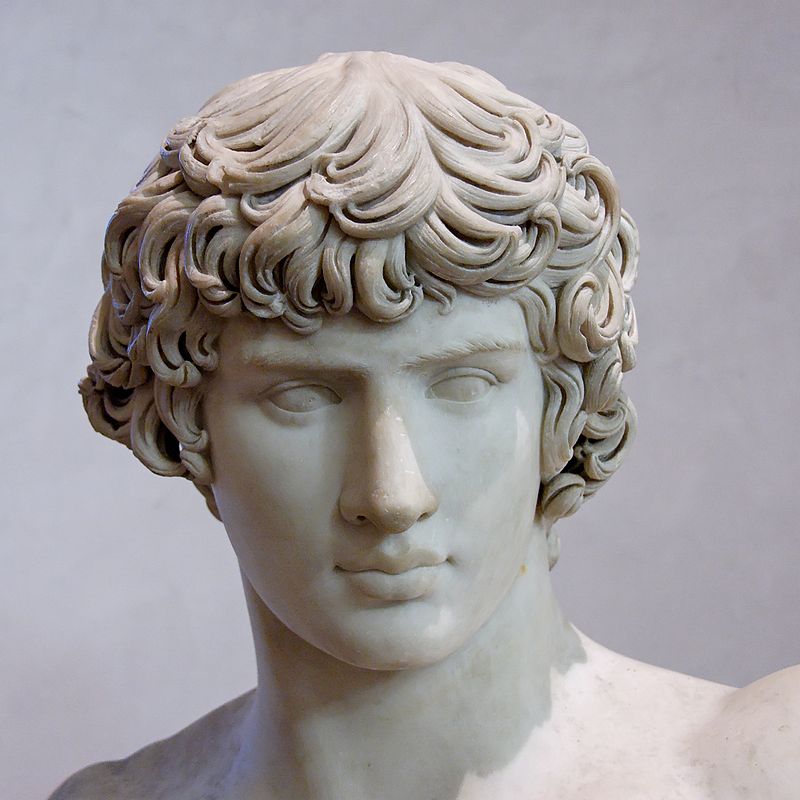With romans and religion, you often thing about their (commendable) habit to feed christians to lions. But how did they approach the traditional roman religion, and the many others they encountered in their expansion?
 https://abs.twimg.com/emoji/v2/... draggable="false" alt="🏛️" title="Gebäude im Klassischen Stil" aria-label="Emoji: Gebäude im Klassischen Stil">ROMANS AND RELIGION: A RAMBLING THREAD
https://abs.twimg.com/emoji/v2/... draggable="false" alt="🏛️" title="Gebäude im Klassischen Stil" aria-label="Emoji: Gebäude im Klassischen Stil">ROMANS AND RELIGION: A RAMBLING THREAD https://abs.twimg.com/emoji/v2/... draggable="false" alt="🏛️" title="Gebäude im Klassischen Stil" aria-label="Emoji: Gebäude im Klassischen Stil">
https://abs.twimg.com/emoji/v2/... draggable="false" alt="🏛️" title="Gebäude im Klassischen Stil" aria-label="Emoji: Gebäude im Klassischen Stil">
#SPQRposting
#SPQRposting
This is not about the list of gods and myths, but what religion was to them.
(If you want a complete, fully accurate account of the greco-roman pantheon, I suggest you to look up the very best academic source:
https://www.supergiantgames.com/games/hades/ )">https://www.supergiantgames.com/games/had...
(If you want a complete, fully accurate account of the greco-roman pantheon, I suggest you to look up the very best academic source:
https://www.supergiantgames.com/games/hades/ )">https://www.supergiantgames.com/games/had...
Often I read "the romans were very pious". How do we know that? Well, they said so themselves! All the time! They wrote it on really fancy stones!
True, but they also claimed to only take part in "just wars". So, err, maybe let& #39;s take that with a grain of salt.
True, but they also claimed to only take part in "just wars". So, err, maybe let& #39;s take that with a grain of salt.
In a way, they *were* very religious. The roman state held gods in high regard (if sometimes in a way reminescent of how you& #39;d treat a bunch of mad terrorists with nukes).
Also, romans worshipped *a lot* of gods - the more, the merrier.
Also, romans worshipped *a lot* of gods - the more, the merrier.
Point is, to them "being religious" was a deeply different thing than it is for us. They definitely believed (to some extent) that performing ritual *mattered*, and brought them success in war, personal life and politics.
But they cared about the *ritual*, like any chore that had to be done. Romans loved procedures and organization. Going to war? Check your weapons, your equipment, honor Mars. Sea travel? Not without sacrificing to Neptune, that& #39;s just common sense!
To make sure that was *always* a god to appeal, they made up weirdly specific gods.
Like the goddess of hinges, goddes of keys (I could use that one, always lose them), a god of manure, and of course a literal dick god.
Pictured: the beautiful, deeply spiritual roman religion
Like the goddess of hinges, goddes of keys (I could use that one, always lose them), a god of manure, and of course a literal dick god.
Pictured: the beautiful, deeply spiritual roman religion
As in many things, they were very pragmatic about it: some romans trusted more the more ancient gods, because they assumed if the cult had survived that long, their god had to work.
Etruscan gods were considered newcomers, untested and unreliable.
Etruscan gods were considered newcomers, untested and unreliable.
They had a priest class (including the highly respected female vestal virgins, worth their own thread) and a lot of occasionally weird public rituals.
But those priest didn& #39;t give life advice and had very little to say about the afterlife.
But those priest didn& #39;t give life advice and had very little to say about the afterlife.
An example of the wild roman ritual: lupercalia, when young patrician men went around half-naked whipping women with strips of goat skin, probably as a fertility wish.
That& #39;s the origin of St. Valentine& #39;s day.
Surprise your partners with a traditional 14 february celebration!
That& #39;s the origin of St. Valentine& #39;s day.
Surprise your partners with a traditional 14 february celebration!
But did the romans *believe* in those gods? Did they have a spirituality in the modern sense? Note that "faith" wasn& #39;t really a religious concept back then. If you believed in the gods, it& #39;s in the way you& #39;d believe rain or grass: things that just are.
It& #39;s not easy to tell. It& #39;s one of the many thing I& #39;d love to ask them. The literates (by definition the ones we know most about) since the late republic tended to be skeptic about miracles and mythical origins.
Overall, they didn& #39;t seem to care much: there are roman text discussing the existence of the gods. They& #39;re usually on the skeptic side, and even Cicero, an annoying and pretentious conservative, openly made fun of oracles.
Probably common people were more faithful - or at least didn& #39;t actively disbelieve, and assumed those gods depicted in fancy temples had to live somewhere. Maybe in Greece. Plenty of strange people there after all.
They liked their political use of gods, though. Bringing effigies of the conquered gods was a great way to show off a victory and propitiate future ones! Even when they came with strange, self-castrating priests who chanted in weird languages.
(that actually happened. The romans were very confused. But hey, you can& #39;t risk angering a goddess even if it& #39;s a weird one, so the conservative senators - with their macho, sober public image - had to welcome the singing eunuch priests)
They also slapped temples of Mars EVERYWHERE. When they took over greek cities, the greeks were like "and that& #39;s our public square, where we gather to debate democrat..." "IT WOULD BE A PITY IF SOMEONE BUILT A TEMPLE OF MARS ON IT"
Their pantheon was so malleable they had no problem adding foreign gods, and they were pretty fine with humans being deified (usually dead emperors, but Hadrian& #39;s young lover become a legit god, too)
Pictured: Antinoo, god of twinks
Pictured: Antinoo, god of twinks
There was no concept of a god being false\nonexistent. The only religions they took issue with were the ones who they perceived as a threat to roman political power - mostly christianism, to a lesser extent jewish religion and druidism.
Even the most famous roman temple, the pantheon... had the remarkable trait of being dedicated to "all the gods". Which sounds a bit of a "whatever" approach to religion.
I think I can picture the conversation.
I think I can picture the conversation.
Emperor: "LET& #39;S MAKE A NEW HUGE TEMPLE! GREATER THAN EVER! BECAUSE WE& #39;RE SO PIOUS!"
Architect: "ok, to which god?"
Emperor:"...idk, can we keep it vague?"
Architect: "ok, to which god?"
Emperor:"...idk, can we keep it vague?"
Architect: "we could make several temples"
Emperor: "do I look like I& #39;m made of money?"
Architect: "Well you literally built a city-sized country villa you know"
Emperor: "do I look like I& #39;m made of money?"
Architect: "Well you literally built a city-sized country villa you know"
Emperor: "well there are a lot of gods and only one me."
And so the pantheon still stands (the Christians didn& #39;t take it down, since well, it was literally to no particular god)
And so the pantheon still stands (the Christians didn& #39;t take it down, since well, it was literally to no particular god)
While interpretation is never easy, I think you can understand the priorities of a civilization by the most impressive physical things they left.
Think about three mediterranean civilizations who were really into building stuff: ancient Egypt, classical Greece and Rome.
Think about three mediterranean civilizations who were really into building stuff: ancient Egypt, classical Greece and Rome.
Ancient Egypt left many monumental tombs. They believed in, and deeply cared about, the afterlife. Greece left great temples, theaters and squares - they thought nothing mattered more than public life and politics.
Of the many things the romans left behind, the most impressive are roads, bridges and acqueducts. I think that tells us more, in the end, than any claim of piety.
(Addendum because I& #39;m a pedantic ass and hate my own simplifications: I mostly mentioned Mars, but the "HEY REMEMBER YOU& #39;RE ROMAN SUBJECTS!!!" temples were mostly dedicated to the capitol triad: Jupiter, Juno and Minerva)
Bonus: a bleak but somewhat fun example of the roman approach to the after life, from a funerary inscription.
A MAN WISHING TO MAKE THE POINT THAT THERE IS NO AFTERLIFE, EVEN AFTER HE WAS DEAD. HE MUST HAVE BEEN FUN AT PARTIES.
A MAN WISHING TO MAKE THE POINT THAT THERE IS NO AFTERLIFE, EVEN AFTER HE WAS DEAD. HE MUST HAVE BEEN FUN AT PARTIES.
(if you enjoyed the thread, there& #39;s more where this came from! https://twitter.com/MalvagioMarco/status/1323041047388311558)">https://twitter.com/MalvagioM...

 Read on Twitter
Read on Twitter





